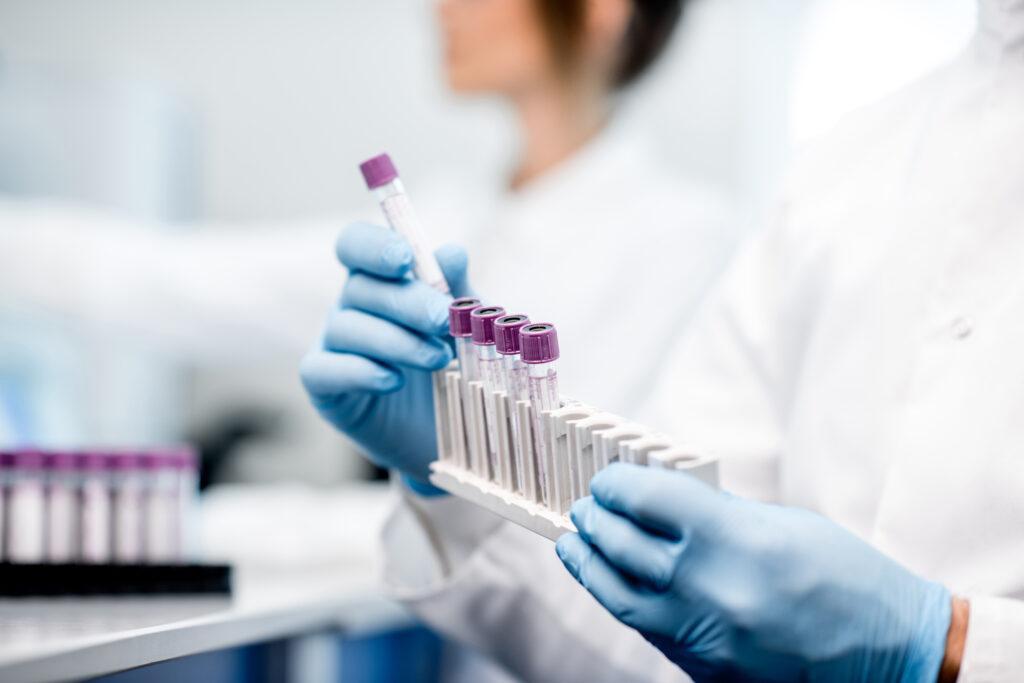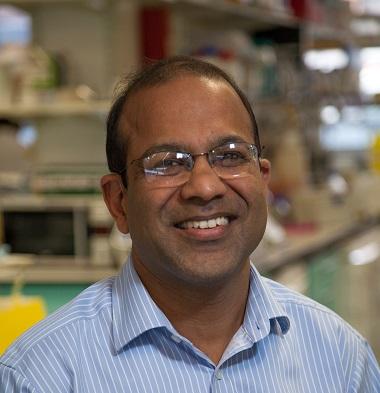Study to investigate how AI could aid early detection of pancreatic cancer

Researchers from Barts Cancer Institute (BCI) at Queen Mary University of London and Edge Hill University are set to investigate how artificial intelligence (AI) could be used to improve early diagnosis of pancreatic cancer.
The researchers have been awarded a £100,000 start-up grant to explore whether AI holds the potential to detect early signs of pancreatic cancer before symptoms start to appear, at which point the cancer is usually too advanced for treatment.
The project will be jointly funded by Cancer Research UK, Pancreatic Cancer UK and the Engineering and Physical Sciences Research Council (EPSRC), part of UK Research and Innovation (UKRI).
Pancreatic cancer has the lowest survival rate of all the common cancers, sadly claiming the lives of approximately 9,400 people each year in the UK. A lack of symptoms in the early stages of the disease means most patients are diagnosed when the cancer is advanced. Screening programmes that can detect cancers at an early stage, when treatment is more likely to be successful, exist in the UK for other common cancers such as for breast and bowel cancers; however, there is no screening programme for pancreatic cancer.
By using data from patients with pancreatic cancer, researchers will use AI to identify potential biomarkers and risk groups who are more likely to develop pancreatic cancer in the future.
Pancreatic cysts and cancer risk
One particular area of focus for the researchers at BCI will be on patients with pancreatic cysts - collections of fluid within the pancreas. Pancreatic cysts are being increasingly diagnosed during screening procedures for bowel cancer and enlarged blood vessels. Although these cysts are usually not cancerous, some do have the potential to become pancreatic cancers. Unfortunately, currently available routine tests cannot tell which cysts may become cancers with certainty.

Professor Hemant Kocher, Professor of Liver and Pancreas Surgery and lead researcher at BCI said:
“Pancreatic cysts are more frequently diagnosed accidentally as people undergo scans for other conditions. Most of the pancreatic cysts are not problematic but some can harbour cancer or be pre-cancerous. Currently we do not have any tests that can safely distinguish between the two. As a result, people with pancreatic cysts are subjected to invasive tests or frequent scans over many years. This leads to unnecessary anxiety and causes undue healthcare burden. This project aims to use artificial intelligence to differentiate between innocent cysts and those that could be potentially dangerous.”
The team aim to employ an AI solution to feed information collected routinely by doctors for pancreatic cysts into a computer programme called Generative Adversarial Network (GAN) to discover hidden patterns that indicate with more certainty which pancreatic cysts are likely to develop into cancer.
The researchers believe that if they can correctly identify patients whose pancreatic cysts may become pancreatic cancers, it could allow for timely interventions and may be possible to save a large number of lives - since early diagnosis offers the best chances of survival.
The Pancreatic Cancer Research Fund Tissue Bank - the national tissue bank for pancreatic cancer, funded by Pancreatic Cancer Research Fund - has collected information on many pancreatic cysts and the resource will be critical in the development of the AI algorithm.
Dr Ardhendu Behera, Reader in Computer Vision & AI at Edge Hill and lead researcher on the project said:
“This is a data-driven approach that aims to find out whether it is possible to use AI to signal that there are links between risk groups and those who have already been diagnosed. Using routinely collected data such as CT/MRI, health conditions, pathology, and blood tests, the AI can identify the possible predictors of pancreatic cancer and will screen out people at high-risk. The potential of AI is incredible, and in this instance could help to save and extend the lives of patients.”
Led by Edge Hill, the year-long study will involve BCI researchers, as well as researchers from University College London, Manchester Metropolitan University and the University of Hertfordshire.
Dr Chris MacDonald, Head of Research at the charity Pancreatic Cancer UK, said:
“Applying AI to pancreatic cancer detection has never been done before, making this a truly unique project and one we are hugely proud to be funding. Currently, more than 50% of people with pancreatic cancer die within three months of diagnosis. For that tragic statistic to change we need more research like this that tests innovative new ideas, which we hope will one day become lifesaving interventions adopted by the NHS.”
Michelle Mitchell, Chief Executive of Cancer Research UK, said:
“We’re proud to support pioneering work bridging the gap between biology and computer sciences, in the continued search for ways to detect the earliest stages of pancreatic cancer.
“In those areas of cancer research where progress has been particularly difficult, bringing together researchers across different disciplines is the way forward. I’m hopeful that this innovative project might bring us closer to being able to diagnose cancer at an early stage, and with it the hope of better outcomes for people with pancreatic cancer.”
Category: General News, Grants & Awards

No comments yet